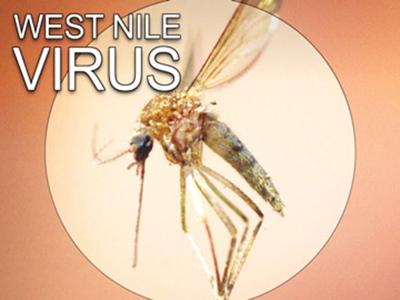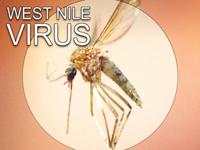The Missouri Department of Health and Senior Services has reported 22 human cases of West Nile virus in the state, with three resulting in death, this year.
On Oct. 16, the Jefferson County Health Department announced one nonfatal human West Nile case in the county so far this year. Jefferson County saw no human cases the previous year, according to DHSS.
In 2024, the state saw 15 human West Nile cases in Missouri, resulting in one death, DHSS reported.
“We did have a human case reported in Jefferson County back in (Aug. 20),” said Brianne Zwiener, communications manager for the Jefferson County Health Department. She said she was not immediately made aware of the local human case because it was a “probable” case and “not lab confirmed.”
Of the 22 cases DHSS reported in Missouri, only two were laboratory confirmed.
The Jefferson County resident who contracted West Nile was hospitalized as a result of the virus, DHSS reported.
West Nile virus is the leading cause of mosquito-borne disease in the contiguous United States. The infection often causes no symptoms, but about one in five people may develop a flu-like illness with fever, headache and/or body aches. In rare cases, especially in older adults or people with weakened immune systems, it can cause serious problems, like swelling of the brain or spinal cord and paralysis, according to the Centers for Disease Control and Prevention (CDC).
According to DHSS, neighboring St. Louis County accounted for five of Missouri’s human cases, and the city of St. Louis had three. Most of the human cases were reported in July and August.
Radio personality Kevin “Kevy Kev” Russell, the general manager of KBDZ 93.1, which is based in Perryville, reportedly died in October 2025 after contracting West Nile virus.
The Jefferson County Health Department’s Vector Division, which started in 2002, offers both mosquito surveillance and mosquito control. Surveillance is done through trapping and testing to identify positive mosquito populations in the county. When a positive population is found, the department immediately applies treatment to eradicate the population.
“We had a few mosquito populations test positive for West Nile toward the end of vector season, but the numbers were consistent with what we have seen in Jefferson County over the last few years,” Zwiener said, adding that the mosquito/vector season runs from May until October.
For the mosquito control part of the program, the Health Department treats or sprays adulticide in county parks. It also has a partnership with the cities of De Soto, Hillsboro and Kimmswick and sprays those areas, too. It also takes requests from residents for areas in unincorporated Jefferson County to spray. In addition, if a mosquito sample tests positive for West Nile, the Health Department will spray the affected area.
Earlier this month, Dr. George Turabelidze, state epidemiologist at DHSS, warned of a spike in West Nile cases and reminded residents to take steps to protect themselves and their families.
“West Nile virus is a serious public health concern, and this year’s increase in cases is a reminder that we must remain vigilant,” he said.
Residents should use insect repellent; wear long sleeves and pants, especially during dawn and dusk when mosquitoes are most active; ensure windows and door screens are in good repair; report dead birds; and eliminate standing water in tires, pool covers, hot tubs, hollow trees, tree stumps, clogged gutters, bird baths, clogged storm drains, rain barrels and down spouts.
The mosquito season is winding down as temperatures consistently drop below 60 degrees.
According to the CDC, except for the southernmost U.S. states, mosquito season starts in the summer and continues into fall.




